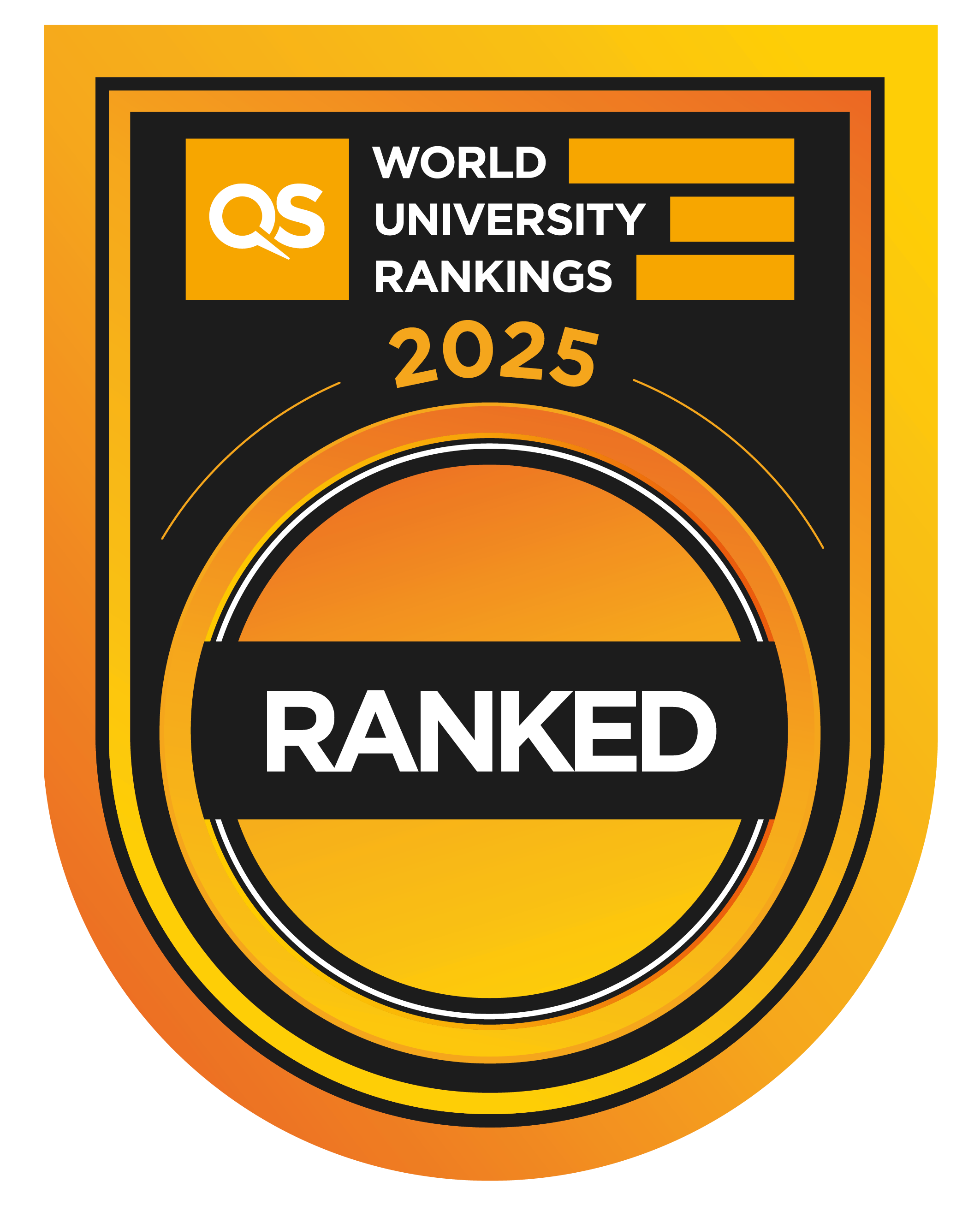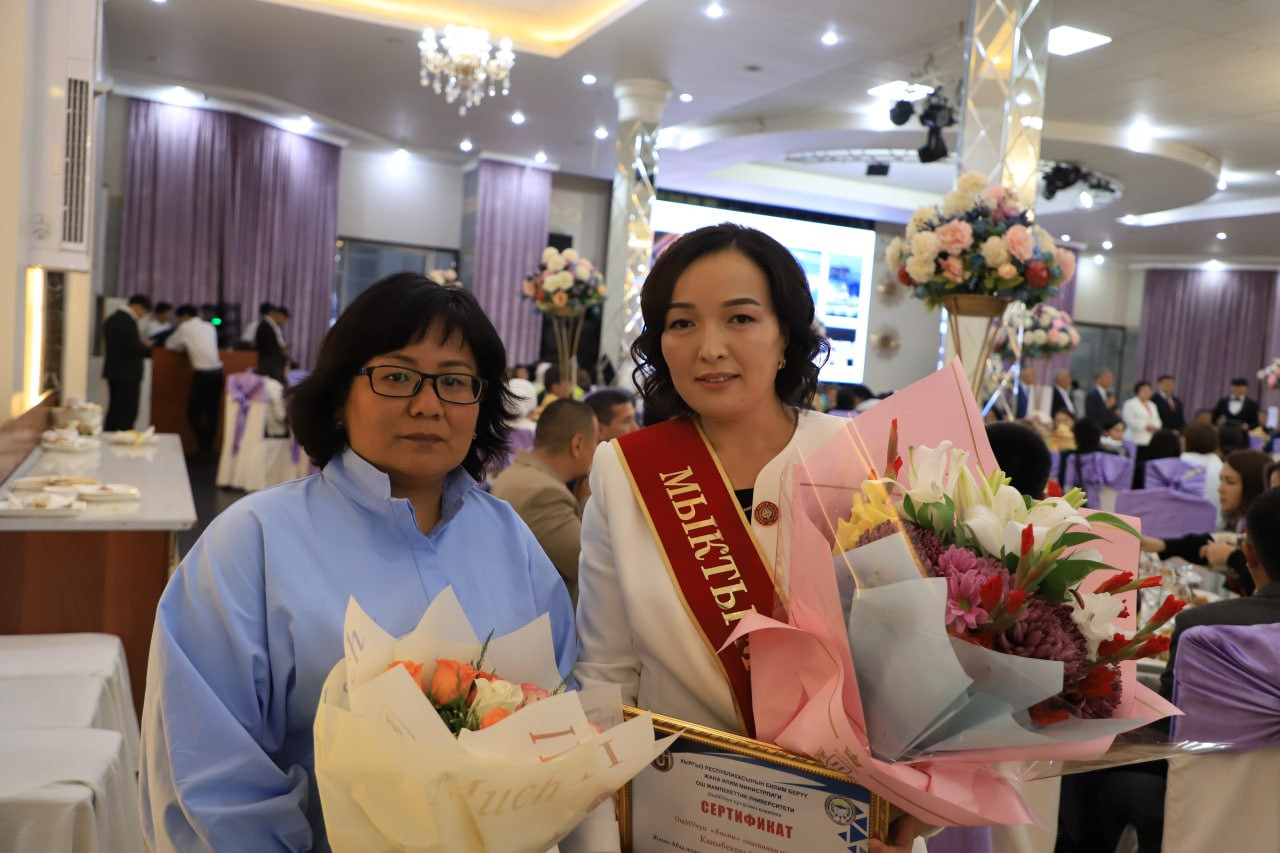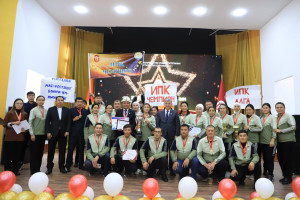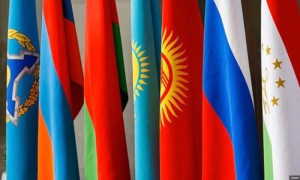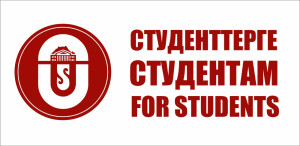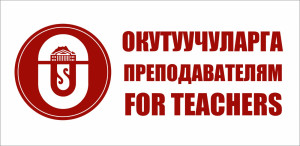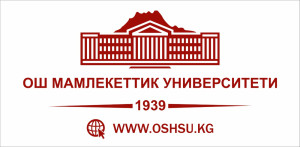
Nazgul Kanybekova: My admiration for my first teacher inspired me to become a teacher
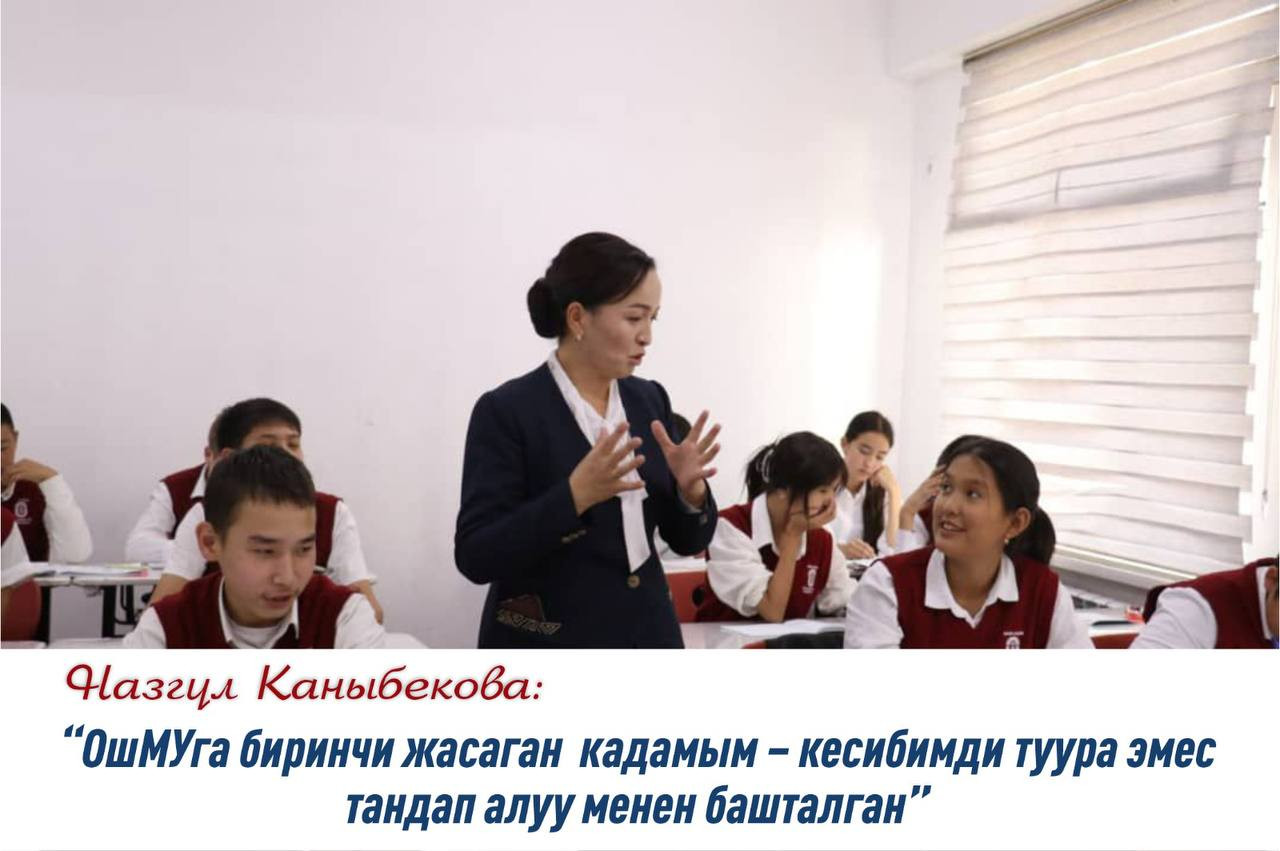
On October 4, the “Best Teacher of the Year – 2024” competition concluded, with Osh State University’s Nazgul Kanybekova taking first place. Our editorial team had the opportunity to interview her.
- This is a proud moment for your loved ones, colleagues, friends, and students. Many are eager to learn more about you. Can you introduce yourself and tell us where you’re from and about your childhood?
- Thank you very much. First of all, I’d like to extend my gratitude to my close friends and mentors for their invaluable support in all my successes. As for me, I was born and raised in Kanysh-Kiya village, Chatkal district, in the Jalal-Abad region. My parents are involved in livestock farming and agriculture. I’m the youngest of nine siblings.
- When did you first become interested in education, and what led you to choose mathematics as your major?
- I was just 6 years old when my older brother, who is a year ahead of me, started first grade. I would sit with him, write alongside him, and read from the “Alippe” book. Often, he would come home from school, toss his bag aside, and go out to play. I’d watch him and then eagerly open my own bag to complete the assignments myself. By the time I started first grade, I already had the “Alippe” memorized.
Something memorable happened when I was in second grade. I had a fight with that same brother at home. One morning, we got into another scuffle, and he accidentally stepped on my foot, causing me to fall. At first, I didn’t feel much pain, but when I tried to stand, I realized my joint was dislocated. I had to stay in bed for a month. Feeling guilty, my brother would bring chalk from school for me to use. We had a chessboard at home, made by my father, which I began using to practice math. My brother taught me what he knew, and I kept track of things on the chessboard.
I missed school so much that I began crying out of the desire to return. My mother, seeing this, placed me on a sled, bundled me up, and dragged me to school. She would bring me into the classroom on the sled, place me between two rows of desks, and use the chessboard as my desk. She would wait for 4-5 hours in the freezing 40-degree cold of Chatkal before taking me back home. It took me a full month before I could walk again. My parents did everything they could to support my education, and I owe them everything for that.
I can confidently say that my love for teaching was inspired by my first teacher. I remember her so vividly, she seemed both beautiful and stern to me. Her gold teeth would glimmer when she laughed, and I still recall how stunning she looked.
- As a proud graduate of OshSU, can you share the key events and achievements during your student years that motivated you?
- Osh State University opened countless doors for me. The university provides great support to students eager to learn, conduct research, and further their education. I encourage everyone to take full advantage of these opportunities. During my time at the MIT faculty, we were taught by some of the greatest minds—professors and doctors of their fields. I consider this one of the greatest blessings God has given me.
In 2012, I was among the first five students to be awarded the “Nationality Scholarship,” presented by our master professor S. Karimov. This was a major source of motivation for me. It wasn’t my first scholarship, though—I had received a small one during my school years. A generous man from our village, Tashkara, used to give a monthly stipend of 20 soms to the school’s top students. I remember proudly bringing my first stipend home, and my father placed the money in the center and gave me his blessing, saying, “Always earn your living through honest work and education.” He even added another 20 soms to the amount.
Whether big or small, receiving a scholarship felt like a huge responsibility and a source of inspiration for me as a child. It pushed me to work harder and aim higher in my studies. Since then, I’ve been determined to establish scholarships for deserving students. My husband fully supports this idea, and I believe it won’t be long before we make it happen.
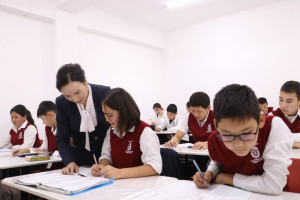
- How did you come to choose this profession?
- My journey at OshSU actually began with an initial misstep in choosing my profession. After graduating from high school in 2008, I achieved a top score of 188 points on the national exam, which was a significant accomplishment at the time, especially since there were no preparatory courses like we have today. My school was quite proud of my results. I took all the additional subjects, and the only options were chemistry, biology, and history. I excelled with a total of 435 marks in chemistry and biology, so, following the advice of many, I applied to the medical faculty.
Getting into the medical faculty was challenging, especially with a scholarship, and my relatives were thrilled. I felt like a child who had just tasted milk; my heart was full of joy. However, when I arrived for classes in September, I noticed that math was absent from my schedule. After two days, I decided to switch to the mathematics department. At that time, Mukhtar Orozbekovich was the rector. My father came from the village and encouraged me to meet with the administration, emphasizing that we needed to focus on studying during the first semester and that a transfer would be possible only after a year.
On September 28, I received my diploma from the dean’s office, even before my documents were submitted to the main building, and I left school to return to the village.
However, once I got home, I was disheartened by the reactions and comments from people. No one understood that I had made a mistake in my career choice and that I would need to retake the exam next year to apply for a teaching position. Many said that those who couldn’t study were simply driven out. I endured those comments for a year, which gave me plenty of time to read literary works and even inspired me to write a song.
The following year, I retook the exam, focusing on just one subject and discarding the rest to avoid any confusion. I had heard that studying accounting involved mathematics, and I wanted to steer clear of any uncertainty about my path. I began my studies in mathematics at the main campus and felt a genuine joy for the first time. Each day, I went to school feeling like I was on vacation. After a year, I found my true calling—the profession that resonated with my soul.
Many people end up making the wrong career choice, so I often advise my students to pursue what their hearts truly desire rather than simply going after reputation or salary. Life is a one-time experience, and what’s the point if you don’t listen to your heart? A person will only seek, reflect, and achieve success in their work if they are engaged in a profession they love.
- What methods do you employ for quality education, and what qualities do you have that others lack?
- I don’t believe I possess any qualities that particularly set me apart from others. I simply strive to make the most of my time. I enjoy engaging in self-reflection because it allows me to analyze what I’m doing correctly and what I need to improve.
To ensure quality education, I’ve started dividing my classes into levels. Specifically, I create three groups: A, B, and C. Not every student comprehends mathematics in the same way, so I tailor my approach to match their varying levels of mastery. While this method requires significant preparation from the teacher, it ultimately benefits the students. I ensure that every student is actively involved in the lesson, solving problems and completing tasks according to their own abilities and strengths.
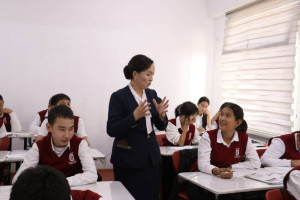
- Do you have any successful students you’d like to share about?
- Among the graduates I taught in 2018, one student earned a Gold Certificate. I trained several of my students who also participated in the Republican Subject Olympiad. I consider my greatest achievement to be the fact that those students who excelled in their studies have chosen to pursue careers in teaching. Their futures are bright. I hope every teacher can take pride in having contributed to the success of their students, feeling that indescribable joy when witnessing their accomplishments.
- You are known as a talented poet whose verses resonate deeply with people. Have you stopped writing while focusing on teaching?
- In 2014, thanks to the initiative and sponsorship of Mr. Kanybek Isakov, my poetry collection titled “The Equation of Life” was published, edited by poet Ulukbek Omokeev. Isakov himself delivered the opening remarks at a significant event in OshSU. Since then, I’ve felt an obligation to write a song. I haven’t been productive in a while, and when I encountered people aware of my songwriting, it became quite challenging to answer the question, “Are you writing new songs?” It felt akin to a debt that I owed. At times, I avoided familiar places to escape those inquiries. However, I eventually realized that creativity isn’t limited to poetry or prose; it can also manifest in lessons. Once I understood that my creative energy was directed toward teaching, the sense of obligation to write became less burdensome.
Currently, I find myself reading more and reflecting on the idea that perhaps I shouldn’t write. There’s a saying: what a poor writer refrains from writing is a significant contribution to literature. I believe I am still contributing to literature in my own way.
- I saw your social media post about your teacher and friends. What qualities should a true teacher and a genuine friend possess?
- The greatest joy for a student is encountering a great teacher. I am thankful to the Creator for guiding my path in this way. Throughout my life, I have been fortunate to have only exceptional teachers. I’ve had wonderful mentors who have supported, guided, and advised me during my time in school, university, internships, and my career. I plan to write more about each of them when the time is right. I want to take this moment to express my gratitude to everyone.
Regarding friendship, I place great importance on it. I started my first friendship by writing letters to a girl named Elgiza. Didn’t boys and girls exchange letters during school? I wrote her a friendly letter, which marked the beginning of our friendship. After that, I’ve found other friends. While I don’t have many, I do have true friends. I have friends who may be far away, but we share a deep connection. We support and uplift each other, and I feel incredibly fortunate to have them.
- What advice would you give to aspiring teachers aiming for the “Teacher of the Year” title?
- Recently, some of my students and graduates from the Kara-Suu Gymnasium of Osh State University came to congratulate me. We had a lengthy conversation. One of them achieved the highest score on the national exam and, despite his parents’ opposition, chose to pursue a career in teaching, specifically in chemistry. I advised him to approach his work with precision, fairness, honesty, and love. It’s important not to merely participate in competitions for recognition. Everything will fall into place, and one day, you’ll feel ready. I encouraged them to enter such competitions, and I would give the same advice to others.
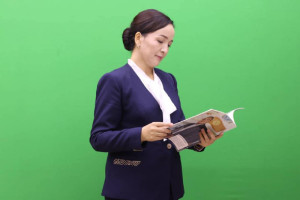
- Not everyone can secure first place in the “Teacher of the Year” competition. What initial steps should someone take to overcome personal challenges and achieve their goals?
- When I entered the competition, my dream was to win the top prize. It’s essential to set your first thoughts and intentions correctly and then put in the effort. Winning the top prize has placed a significant responsibility on my shoulders. I realize that I must take this seriously and work two or three times harder than before. It’s important for me to contribute to education in every way I can, support the ongoing reforms in the system, and create even more positive initiatives.
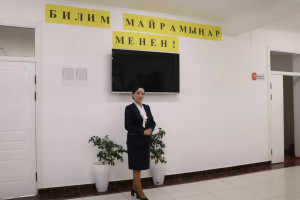
Thank you very much for this engaging interview, and I wish you success in your efforts.
Prepared by: OshSU press secretary Zinagul Nuralieva.

